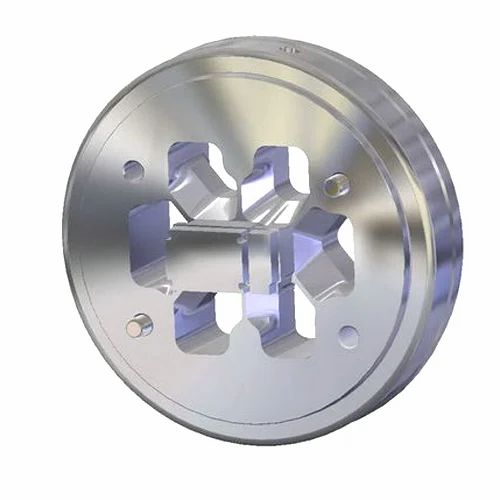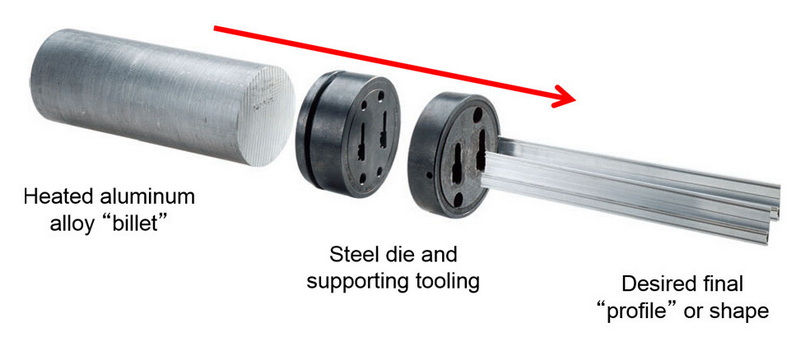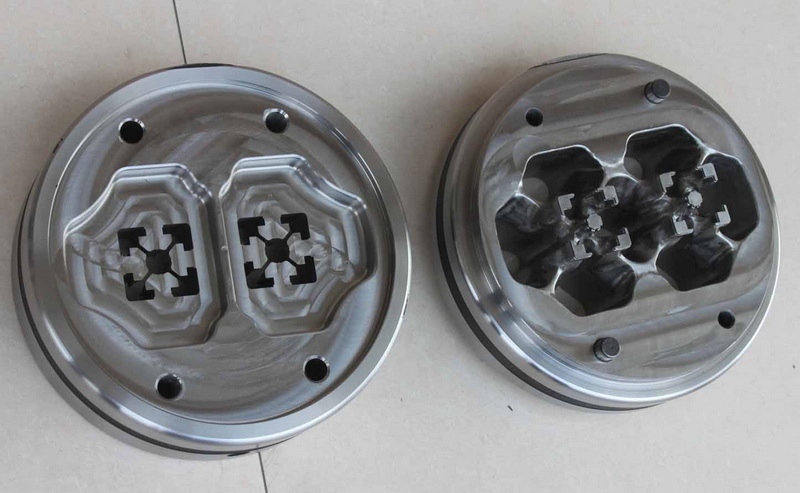Content Menu
● Introduction
● Aluminum Extrusion Process Overview
● Key Benefits of Custom Aluminum Extrusions
>> Design Flexibility
>> Material Efficiency
>> Strength and Lightweight Properties
>> Aesthetic Appeal
>> Sustainability and Environmental Impact
● Applications of Custom Aluminum Extrusions
>> Construction and Architectural Applications
>> Automotive Industry
>> Aerospace Applications
>> Consumer Products
>> Industrial Applications
● Future Trends in Aluminum Extrusion
>> Advanced Manufacturing Techniques
>> Increased Focus on Sustainability
>> Customization and Personalization
>> Enhanced Material Properties
● Conclusion
● Related Questions
>> 1. What are the main advantages of using aluminum extrusions in product design?
>> 2. How does the aluminum extrusion process work?
>> 3. What industries benefit from custom aluminum extrusions?
>> 4. How can custom aluminum extrusions contribute to sustainability?
>> 5. What trends are shaping the future of aluminum extrusion?
Introduction
In the world of manufacturing and product design, the choice of materials and processes can significantly impact the final product's performance, aesthetics, and cost-effectiveness. One of the most versatile and efficient methods for creating complex shapes and structures is aluminum extrusion. This process involves forcing aluminum alloy through a die to create custom profiles that can be used in various applications. Custom aluminum extrusions not only provide design flexibility but also enhance the overall functionality and appeal of products. In this article, we will explore how custom aluminum extrusions can enhance your product design, focusing on the benefits of using aluminum extrusion dies and the various applications of this innovative manufacturing technique.

Aluminum Extrusion Process Overview
Aluminum extrusion is a manufacturing process that transforms aluminum alloy into specific shapes by forcing it through a specially designed die. The process begins with heating the aluminum billets to a malleable state, allowing them to be easily shaped. Once heated, the aluminum is placed in a press, where it is pushed through the die, creating a continuous profile that can be cut to the desired length.
The versatility of aluminum extrusion lies in its ability to produce a wide range of shapes, from simple bars to complex geometries. This flexibility makes it an ideal choice for various industries, including construction, automotive, aerospace, and consumer products. The aluminum extrusion die plays a crucial role in determining the final shape and quality of the extruded product, making it essential to choose the right design for your specific needs.
Key Benefits of Custom Aluminum Extrusions
Design Flexibility
One of the most significant advantages of custom aluminum extrusions is the design flexibility they offer. With the ability to create intricate shapes and profiles, designers can develop products that meet specific functional and aesthetic requirements. Custom aluminum extrusions allow for the integration of features such as grooves, channels, and mounting points directly into the profile, reducing the need for additional components and assembly processes.
This design flexibility enables manufacturers to create lightweight structures without compromising strength. For instance, in the automotive industry, custom aluminum extrusions can be used to produce lightweight frames and components that improve fuel efficiency while maintaining structural integrity.
Material Efficiency
Aluminum extrusion is known for its material efficiency, as the process minimizes waste during production. Unlike traditional machining methods that cut away material from a solid block, aluminum extrusion utilizes the entire billet, resulting in less scrap and lower material costs. This efficiency is particularly beneficial for large-scale production runs, where even small reductions in waste can lead to significant cost savings.
Moreover, the ability to create complex shapes means that designers can optimize the material distribution within the profile, ensuring that strength is maximized while weight is minimized. This optimization is crucial in industries such as aerospace, where every ounce counts.
Strength and Lightweight Properties
Aluminum is renowned for its strength-to-weight ratio, making it an ideal material for various applications. Custom aluminum extrusions can be designed to enhance these properties further, allowing for the creation of lightweight yet robust structures. The use of aluminum alloys, which can be tailored to meet specific strength requirements, ensures that the final product can withstand the demands of its intended application.
For example, in the construction industry, custom aluminum extrusions are often used for window frames, curtain walls, and structural components. These applications benefit from aluminum's resistance to corrosion and its ability to maintain structural integrity over time, making it a preferred choice for architects and builders.

Aesthetic Appeal
In addition to their functional benefits, custom aluminum extrusions can significantly enhance the aesthetic appeal of a product. The smooth surface finish of extruded aluminum allows for various finishing options, including anodizing, painting, and powder coating. These finishes not only improve the appearance of the product but also provide additional protection against environmental factors.
Designers can leverage the aesthetic versatility of aluminum extrusions to create visually striking products that stand out in the market. Whether it's a sleek, modern look for consumer electronics or a more traditional appearance for architectural applications, custom aluminum extrusions can be tailored to meet the desired aesthetic.
Sustainability and Environmental Impact
As sustainability becomes increasingly important in product design, aluminum extrusion offers a compelling solution. Aluminum is a highly recyclable material, and the extrusion process itself generates minimal waste. By choosing custom aluminum extrusions, manufacturers can reduce their environmental footprint while still achieving high-quality results.
Furthermore, the lightweight nature of aluminum contributes to energy savings during transportation and installation. In industries such as automotive and aerospace, reducing weight can lead to lower fuel consumption and emissions, aligning with global sustainability goals.
Applications of Custom Aluminum Extrusions
Custom aluminum extrusions find applications across various industries, each benefiting from the unique properties of aluminum. Here are some notable examples:
Construction and Architectural Applications
In the construction industry, custom aluminum extrusions are widely used for window frames, curtain walls, and structural components. The ability to create complex shapes allows architects to design innovative buildings that are both functional and aesthetically pleasing. Aluminum's resistance to corrosion ensures that these structures maintain their appearance and performance over time.
Automotive Industry
The automotive industry has embraced custom aluminum extrusions to create lightweight components that improve fuel efficiency without sacrificing safety. From chassis components to interior trim, aluminum extrusions play a vital role in modern vehicle design. The use of aluminum also contributes to the overall sustainability of vehicles, as it can be easily recycled at the end of its life cycle.
Aerospace Applications
In aerospace, where weight reduction is critical, custom aluminum extrusions are used to manufacture various components, including frames, brackets, and support structures. The strength and lightweight properties of aluminum make it an ideal choice for aircraft design, helping to improve fuel efficiency and overall performance.
Consumer Products
Custom aluminum extrusions are also prevalent in consumer products, such as electronics, furniture, and sporting goods. The ability to create unique shapes and finishes allows manufacturers to differentiate their products in a competitive market. For example, custom aluminum extrusions can be used to create sleek enclosures for electronic devices, enhancing both functionality and aesthetics.
Industrial Applications
In industrial settings, custom aluminum extrusions are used for machinery frames, conveyor systems, and equipment housings. The durability and strength of aluminum make it suitable for demanding environments, while its lightweight nature facilitates easier handling and installation.
Future Trends in Aluminum Extrusion
As technology continues to advance, the aluminum extrusion industry is poised for significant growth and innovation. Here are some trends to watch for in the coming years:
Advanced Manufacturing Techniques
The integration of advanced manufacturing techniques, such as 3D printing and automation, is expected to revolutionize the aluminum extrusion process. These technologies can enhance precision, reduce lead times, and enable the production of more complex shapes.
Increased Focus on Sustainability
With growing concerns about environmental impact, the aluminum extrusion industry is likely to see an increased focus on sustainability. Manufacturers will continue to explore ways to reduce waste, improve energy efficiency, and promote recycling initiatives.
Customization and Personalization
As consumer preferences shift towards personalized products, the demand for custom aluminum extrusions is expected to rise. Manufacturers will need to adapt to this trend by offering more flexible design options and shorter production times.
Enhanced Material Properties
Research and development efforts will likely lead to the creation of new aluminum alloys with enhanced properties, further expanding the applications of aluminum extrusions. These advancements could open new markets and opportunities for innovation.
Conclusion
Custom aluminum extrusions offer a wealth of benefits that can significantly enhance product design. From design flexibility and material efficiency to strength and aesthetic appeal, the advantages of using aluminum extrusion dies are clear. As industries continue to evolve, the demand for custom aluminum extrusions will only grow, driven by the need for innovative solutions that meet the challenges of modern manufacturing.
By embracing the possibilities of custom aluminum extrusions, manufacturers can create products that not only meet functional requirements but also stand out in a competitive market. The future of aluminum extrusion is bright, with advancements in technology and a focus on sustainability paving the way for continued growth and innovation.

Related Questions
1. What are the main advantages of using aluminum extrusions in product design?
Custom aluminum extrusions offer design flexibility, material efficiency, strength, lightweight properties, and aesthetic appeal, making them an ideal choice for various applications.
2. How does the aluminum extrusion process work?
The aluminum extrusion process involves heating aluminum billets and forcing them through a die to create custom profiles. This method allows for the production of complex shapes with minimal waste.
3. What industries benefit from custom aluminum extrusions?
Custom aluminum extrusions are used in various industries, including construction, automotive, aerospace, consumer products, and industrial applications.
4. How can custom aluminum extrusions contribute to sustainability?
Aluminum is highly recyclable, and the extrusion process generates minimal waste. Additionally, lightweight aluminum components can lead to energy savings during transportation and use.
5. What trends are shaping the future of aluminum extrusion?
Future trends include advanced manufacturing techniques, increased focus on sustainability, customization and personalization, and enhanced material properties through research and development.






















